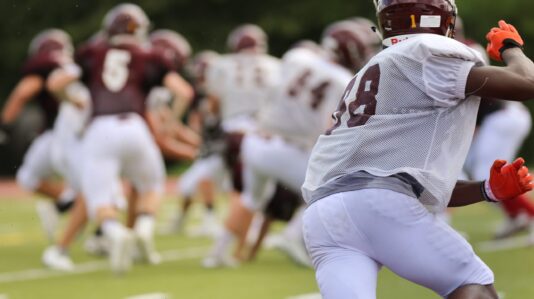Question:
“I’ve been playing ball my entire life, and now I’ve got a shot at the pros. My buddy tells me I should get an agent, but I don’t want to pay a guy to just shuffle some papers. Can’t I just handle my contract on my own?” – Al E. Hoop
Answer:
Once upon a time professional athletes had to fend for themselves and accept any salary and terms a team offered them. But times have changed. Every major professional sports league in the country now has a players union that, among other things, helps set minimum salaries. Player contracts, especially for entry-level athletes, are becoming more and more standardized. Whether you’re a pine rider or a 4th line grinder, you know you will at least make the league minimum. Some pro leagues even have collective bargaining agreements (“CBAs”) that dictate minimum salaries for newer players based on draft position, years of service and numerous other factors.
So if there is so little room for negotiation, why do you need an agent? The short answer is that you don’t, but here are a few reasons why you might want one:
Sports is a Business
If you’ve made it to the pros, without a doubt you know your game inside and out. But how much do you know about the business itself? Have you read the CBA? What’s the difference between a no-movement clause and a no-trade clause? When can you start contacting teams about your new contract? How do you even go about that? Even an experienced player may not have the answers to these questions, but an experienced agent will. Your agent will be better equipped to talk shop with management and ensure that you get the best deal possible. In addition, they can help you avoid breaking rules that will land you in hot water.
For example, at the end of the 2015-2016 season, Russell Okung, an offensive tackle and then-free agent in the NFL, emailed every team in the league, including his current team, stating that he wanted to speak with them “ASAP”. Unfortunately for him, this was a violation of league rules. The NFL has a policy that restricts when agents and players can officially discuss business with teams. Okung sent his emails outside of that window. Had he been represented by a licensed agent, this misstep might have been avoided.
Making Money Off the Court
More and more athletes are now supplementing their income through endorsements. But unless you’re the next Kobe or A-Rod, you might not have brands beating down your door. So how do you get those deals? A well-connected agent can help you find companies that may want to sponsor you. Your rep might help you snag a sponsor to cover the “basics” like equipment (shoes, bats, pads, or clubs) endorsements or paid appearance fees. A good agent will probably ask what other areas interest you and try to find other opportunities. Clothing, beverage, and fitness companies often work with athletes to promote their brands. If you have an active social media presence, you may have even more prospects for endorsements. Unlike your team contract, these agreements are not standardized. An experienced agent will know how to handle these deals.
Teams Don’t Want to Pay You
You probably want the most money you can get, while ownership wants to pay as little as possible to keep you. How do you deal with comments like, “she’s too slow” or “his batting average tanked last year” or “he has one of the worst save percentages in the league”? No one likes to hear those things about themselves, even if they are true. Some players prefer to have their agents handle most of the nitty-gritty of the negotiation process to avoid sitting through meetings that can be uncomfortable. MLB pitcher Kyle Lohse, who sat in on his 2005 arbitration hearing with the Minnesota Twins, had this to say:
“It’s not a pleasant thing … It’s hard to sit there and listen to the lawyer say how bad you are when the GM is sitting right there and you feel like he fed them the info to talk about how bad you are yet they still want you. It can get almost a little personal in there at times.”
Having a representative on your side to fight on your behalf can avoid bruised feelings that linger after your new contract is signed. It may also allow you to keep your focus on your craft instead of dealing with contract negotiations that may be happening in the middle of the season.
Concierge Service
Many agents will offer services to their signed talent beyond contract negotiation. Today, agencies often have a team of professionals to help you with everything – from public relations to off-season training to relocation after a trade. Agents may also help you transition to life after the game.
Athletic careers don’t last forever, and it is best to have a plan in place before retirement. If you are interested in coaching or broadcasting, agents can assist in finding you those opportunities. Many will also continue to represent you in your new career.
So Al, no, you don’t need an agent. However, having one can make your career much easier and probably more profitable. These days, agents do a lot more than just negotiate contracts between players and teams. Maximizing an athlete’s value takes a lot of time and energy. Building a good team of agents, attorneys, financial advisors and other experienced professionals, can help you keep your focus on the game while they focus on the deals.
Contact an Attorney Today
The experienced attorneys at Romano Law are ready to help. Contact us at 212-865-9848 or complete this form to speak to a member of our team!



